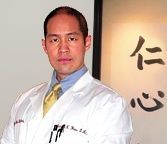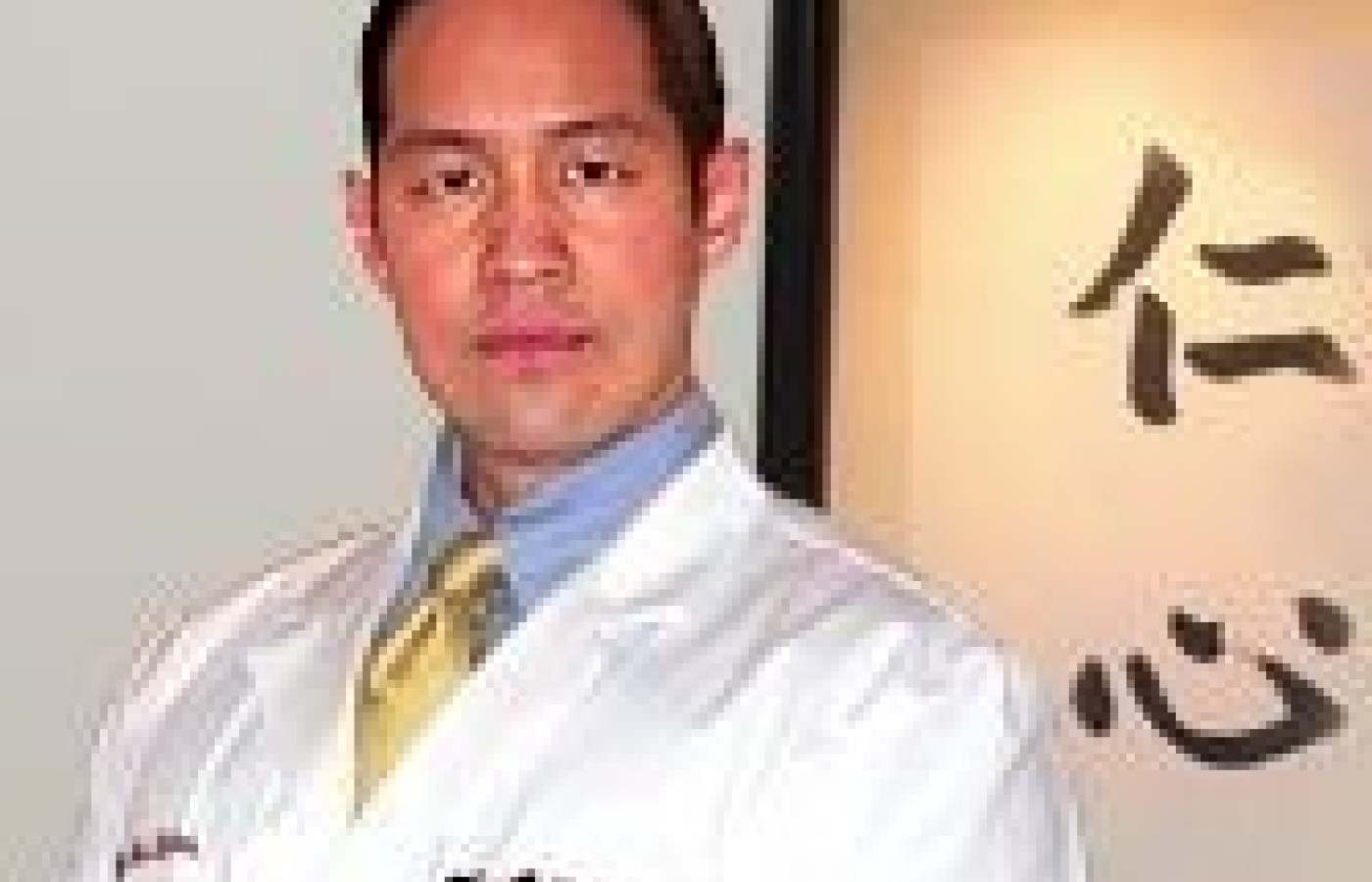The most important relationship I seek to nurture in the treatment room is the one a patient has with their own body. We live in a culture that teaches us to override pain, defer to outside authority, and push through discomfort. Patients often arrive hoping I can “fix” them, but the truth is, we can’t do the work for them. We can offer guidance, insight and support, but healing requires their full participation.
The Globalization of Acupuncture and TCM
With Oprah and her worldwide audience learning about the benefits of acupuncture, is mainstream public acceptance far behind?
"We're witnessing the globalization of medicine." With those simple words, Dr. Mehmet Oz may have brought acupuncture and Oriental medicine one step closer to worldwide public acceptance. The setting: "The Oprah Winfrey Show," Feb. 13, 2007. The context: a demonstration of acupuncture by Daniel Hsu, LAc, MSTOM. Oprah herself received a wellness treatment while a guest, Angela, received specific treatment for her chronic shoulder pain.
What better opportunity to share the benefits of acupuncture and traditional Chinese medicine with a global television audience than on "The Oprah Winfrey Show?" The program has been the most-watched daytime talk show in the United States since 1986, with an estimated 48 million Americans tuning in each week. Its reach extends far beyond the U.S., however, as it is broadcast internationally in 126 countries. "Ask Dr. Oz" is a popular periodic feature of the show, during which the doctor answers audience members' questions about specific health issues.

As the Feb. 13 episode begins, Angela explains she's had shoulder pain for "a long time" and has gotten massages, but nothing has seemed to help. Her question for Dr. Oz: What about trying acupuncture? "Acupuncture makes a lot of sense in that setting," he responds, after verifying with Angela that she's had the shoulder X-rayed to rule out the possibility of dislocation, etc.
In a sense, Dr. Oz represents the progressive merging of conventional and CAM; of Western and Eastern medicine. He is a vice chair of surgery and professor of cardiac surgery at Columbia University, and is a founder and director of the complementary medicine program at New York Presbyterian Columbia Hospital. As anyone who has seen "Ask Dr. Oz" can attest, he is a huge advocate of complementary and alternative medicine.
"Acupuncture has been around for 2,500 years in China," he explains to Oprah. "There are a billion people in another part of the world who use these therapies. So for us to just now be beginning to grapple with it is a little bit surprising."
"We're slow," say Oprah. Dr. Oz agrees.
Oprah then introduces Daniel Hsu, a licensed acupuncturist from New York. (Daniel is a doctoral fellow at Pacific College of Oriental Medicine in San Diego. He attended PCOM in New York City, receiving a Master's of Science in Traditional Oriental Medicine; and is licensed in New York and Rhode Island. He founded and practices at the New York AcuHealth Center in NYC.) Daniel attests that "[Acupuncture] treats any condition, from allergies to obviously pain to gastrointestinal issues - a wide range of chronic [conditions]. ... It's also good for wellness and to boost your immune system. You don't have to be sick to get it."
Oprah explains that Angela will be getting a full treatment backstage, and that Oprah herself has "agreed to test it out." She quickly adds, "The last time I got stuck with a needle, it didn't go so well," a reference to the Feb. 21, 2005 episode, when she got her ears pierced for the very first time. Oprah's concern about the prospect of having needles inserted into her body is a real one, undoubtedly shared by many people who have never experienced acupuncture. She emphasizes this point, saying many people are afraid to even try acupuncture because they think it looks painful.
"Yesterday, I had my blood drawn, and even that was hard," she says. "These are very different needles," Dr. Oz replies. Right before Oprah's treatment, he again reassures her: "The needle could fit through the hole in the needle they use to take blood from your arm."
Dr. Oz explains that the needles will stimulate nearby nerves, "which then send messages out to the brain. The brain releases a chemical called endorphin - that's what gives you the runner's high." "I'm going to get a runner's high right here?" says Oprah. "You're going to get it right now," Dr. Oz responds.
"And actually, that's the mechanism [by which] we think it works."
Daniel Hsu proceeds to place one needle in the top of one of Oprah's feet and one in the top of one of her hands. "I felt it," she says, "[but it's] not as bad as getting your blood drawn. ... not bad, not bad at all." He removes the needles, and Oprah tells viewers he will be taking Angela backstage for a full treatment.
After a commercial break, Dr. Oz provides an overview of complementary and alternative medicine. "Let's broaden the discussion," he says, "because it's not just about acupuncture. ... We have global media, we have global banking..."
"So why shouldn't there be global medicine?" Oprah interjects. "Exactly," says Dr. Oz. "And alternative medicine is the globalization of medicine." He then proceeds to explain that the human body is pure energy, and that acupuncture taps into meridians - energy we can't actually see. Our cells are energy, our organs are energy. "We are beginning now to understand things we know in our hearts are true, but we could never measure. ... Understanding for the first time how energy influences how we feel. Because we are energy."
"That's very exciting," says Oprah.
While Angela receives her acupuncture treatment backstage - approximately 12 needles placed strategically in the upper right quadrant of her back/shoulder - Dr. Oz answers audience questions on a variety of topics, ranging from cellulite to skin cancer to teeth whitening. With the show winding down, Oprah brings Angela out on stage and inquires about the status of her chronic shoulder pain. "Do you notice anything now?" she asks. "If you don't, then don't say so."
"I feel rejuvenated," Angela responds. "The pain that I had was a constant, radiating pain, and I don't feel it ... I don't feel it. I feel wonderful."
"I need to get 12 more after the show," Oprah tells the audience. She turns back to Angela and asks her if she was in pain earlier in the show. Angela reiterates that she was in constant pain and couldn't even sleep at night sometimes.
"Would you do it again?" asks Oprah. "Oh, definitely," says Angela. Daniel Hsu adds that she should probably have several treatments back to back and eventually, "She'll have no pain at all."
In a phone conversation with AT on March 2, Daniel said he hopes his appearance on the show will help advance acupuncture and traditional Chinese medicine, bringing it into the limelight as a viable adjunct to Western medicine.
Oprah's influence is truly global, even if you take her talk show out of the equation altogether. With a production company (Harpo Productions), a cable network (Oxygen), a magazine (O, the Oprah Magazine) that boasts 2.4 million subscribers, "Oprah's Book Club," a Web site that averages a staggering 68 million page views each month, and philanthropic interests too numerous to list, suffice it to say that if Oprah endorses (or disavows) something or someone, a decent percentage of the public will follow.
Will this trend hold true, now that acupuncture and Oriental medicine have taken center stage? Only time will tell.



